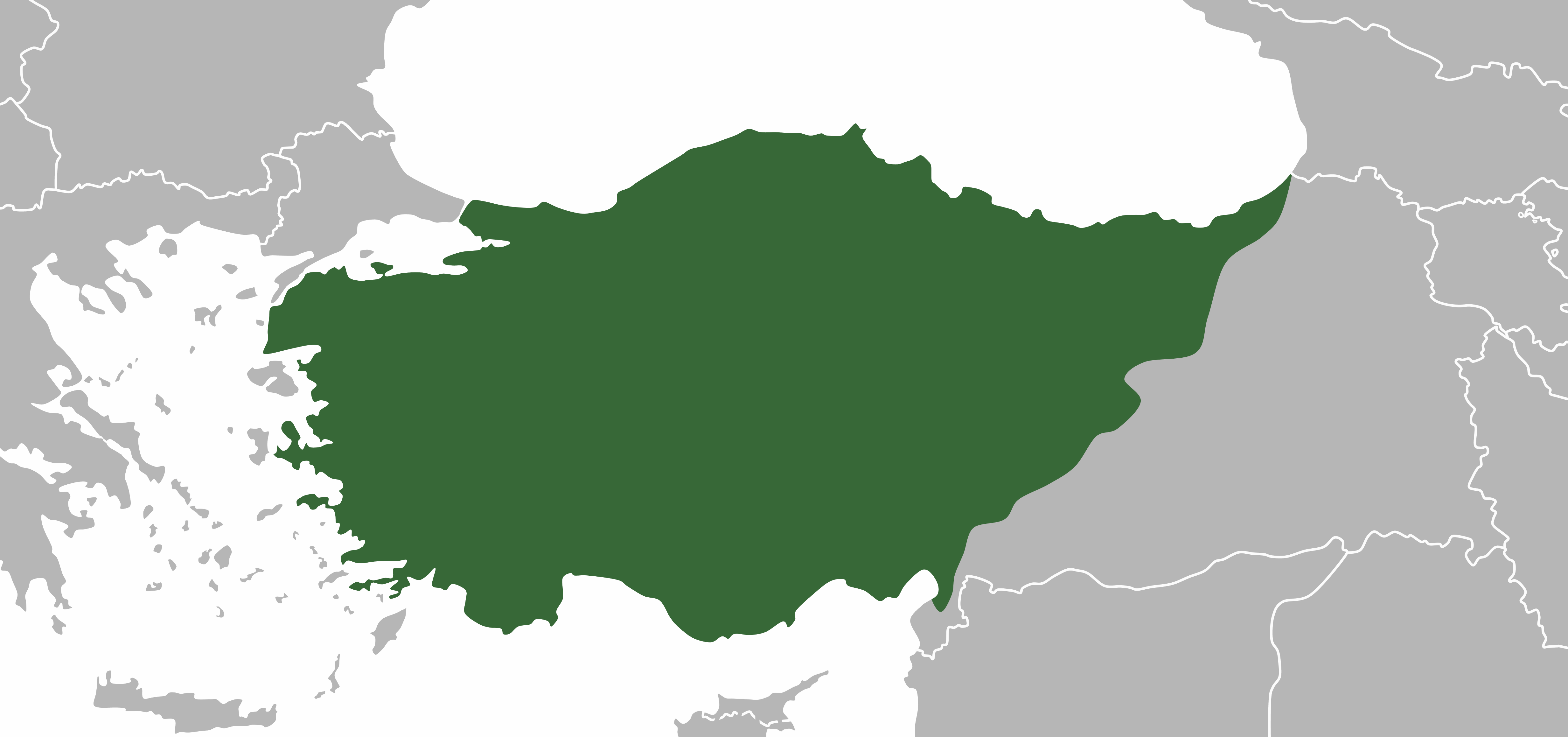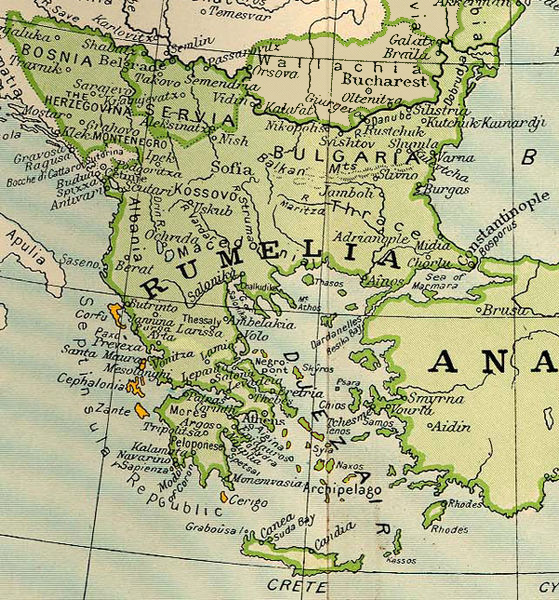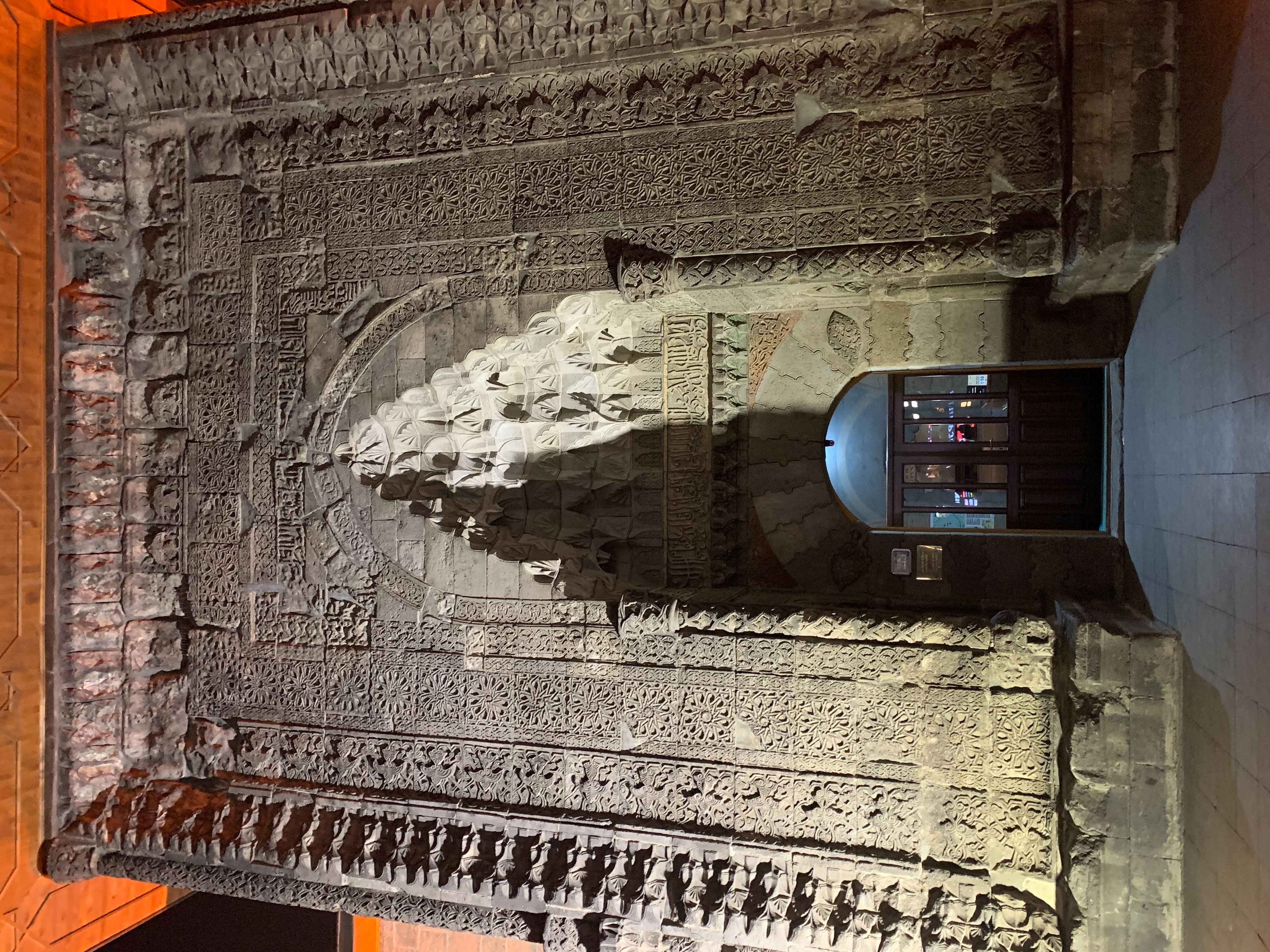|
Rūm
Rūm ( , collective; singulative: ''Rūmī'' ; plural: ''Arwām'' ; ''Rum'' or ''Rumiyān'', singular ''Rumi''; ), ultimately derived from Greek Ῥωμαῖοι (''Rhomaioi'', literally 'Romans'), is the endonym of the pre-Islamic inhabitants of Anatolia, the Middle East and the Balkans and date to when those regions were parts of the Eastern Roman Empire. The term ''Rūm'' is now used to describe: *The city of Rome in Italy, and the people living in it. * Remaining pre-Islamic ethnocultural Christian minorities living in the Near East and their descendants, notably the Antiochian Greek Christians who are members of the Greek Orthodox Church of Antioch and the Melkite Greek Catholic Church of Syria, Lebanon, Jordan, Israel, Palestine, and the Hatay Province in Southern Turkey whose liturgy is still based on Koine Greek. * Orthodox Christian citizens of modern Turkey originating in the pre-Islamic peoples of the country, including Pontians from the Black Sea mountains in t ... [...More Info...] [...Related Items...] OR: [Wikipedia] [Google] [Baidu] |
Roman People
The Roman people was the ethnicity and the body of Roman citizens (; ) during the Roman Kingdom, the Roman Republic, and the Roman Empire. This concept underwent considerable changes throughout the long history of the Roman civilisation, as its borders expanded and contracted. Originally only including the Latins of Rome itself, Roman citizenship was extended to the rest of the Italic peoples by the 1st century BC and to nearly every subject of the Roman empire in late antiquity. At their peak, the Romans ruled large parts of Europe, the Near East, and North Africa through conquests made during the Roman Republic and the subsequent Roman Empire. Although defined primarily as a citizenship, "Roman-ness" has also and variously been described as a cultural identity, a nationality, or a multi-ethnicity that eventually encompassed a vast regional diversity. Citizenship grants, demographic growth, and settler and military colonies rapidly increased the number of Roman citizens. Th ... [...More Info...] [...Related Items...] OR: [Wikipedia] [Google] [Baidu] |
Melkite Greek Catholic Church
The Melkite Greek Catholic Church (, ''Kanīsat ar-Rūm al-Malakiyyīn al-Kāṯūlīk''; ; ), also known as the Melkite Byzantine Catholic Church, is an Eastern Catholic church in full communion with the Holy See as part of the worldwide Catholic Church. Its chief hierarch is Patriarch Youssef Absi, who resides at the Cathedral of Our Lady of the Dormition in Damascus, Syria. The Melkite Church follows the Byzantine Rite and traces its origins to the early Christian community of the Patriarchate of Antioch in the 1st century AD, where Saint Peter is traditionally held to have established a Christian community. The Melkite Church shares its Byzantine liturgical, theological, and spiritual heritage with the Greek Orthodox Church of Antioch and other Eastern Orthodox churches. It is primarily centered in Syria, Lebanon, Jordan, Israel, and Palestine, though significant diaspora communities exist worldwide due to historical migration, persecution, and intermarriage. The Melkit ... [...More Info...] [...Related Items...] OR: [Wikipedia] [Google] [Baidu] |
Greek Orthodox Church Of Antioch
The Greek Orthodox Patriarchate of Antioch (), also known as the Antiochian Orthodox Church and legally as the Rum (endonym), Rūm Orthodox Patriarchate of Antioch and All the East (), is an autocephalous Greek Orthodox church within the wider communion of Eastern Orthodox Christianity that originates from the historical Church of Antioch. Headed by the Greek Orthodox patriarch of Antioch, it considers itself the successor to the Christians, Christian community founded in Antioch by the Apostles in the New Testament, Apostles Saint Peter, Peter and Saint Paul, Paul. It is one of the largest Christian denominations of the Middle East, alongside the Copts of Egypt and the Maronites of Lebanon. Its adherents, known as Antiochian Greek Christians, Antiochian Christians, are a Middle-Eastern semi-ethnoreligious Eastern Christianity, Eastern Christian group residing in the Levant region including the Hatay Province of Turkey. Many of their descendants now live in the global Christian ... [...More Info...] [...Related Items...] OR: [Wikipedia] [Google] [Baidu] |
Cappadocian Greeks
The Cappadocian Greeks (; ), or simply Cappadocians, are an ethnic Greek community native to the geographical region of Cappadocia in central-eastern Anatolia; roughly the Nevşehir and Kayseri provinces and their surroundings in modern-day Turkey. There had been a continuous Greek presence in Cappadocia since antiquity, and by at least the 5th century AD the Greek language had become the lingua franca of the region. In the 11th century Seljuq Turks arriving from Central Asia conquered the region, beginning its gradual shift in language and religion. In 1923, following the mass killing of Christian Ottomans across Anatolia, the surviving Cappadocian communities were forced to leave their native homeland and resettle in Greece by the terms of the Greek–Turkish population exchange. Today their descendants can be found throughout Greece and the Greek diaspora worldwide. History Early migrations The area known as Cappadocia today was known to the Ancient Persians as '' ... [...More Info...] [...Related Items...] OR: [Wikipedia] [Google] [Baidu] |
Rumelia
Rumelia (; ; ) was a historical region in Southeastern Europe that was administered by the Ottoman Empire, roughly corresponding to the Balkans. In its wider sense, it was used to refer to all Ottoman possessions and Vassal state, vassals in Europe. These would later be geopolitically classified as "the Balkans", although Hungary and Moldova are sometimes excluded. In contemporary English sources, Rumelia was known as Turkey in Europe. Etymology ''Rûm'' in this context means 'Roman' and ''ėli'' means 'land', and thus ''Rumelia'' (, ''Rūm-ėli''; Turkish language, Turkish: ''Rumeli'') means 'Land of the Romans' in Ottoman Turkish language, Ottoman Turkish. It refers to the lands conquered by the Ottoman Empire in the Balkans, most of which formerly belonged to the Byzantine Empire, known by its contemporaries as the Eastern Roman Empire, Roman Empire. Although the term ''Byzantine Empire'' is used by modern historians, the empire's citizens and emperors called themselves Ro ... [...More Info...] [...Related Items...] OR: [Wikipedia] [Google] [Baidu] |
Erzurum
Erzurum (; ) is a List of cities in Turkey, city in eastern Anatolia, Turkey. It is the largest city and capital of Erzurum Province and is 1,900 meters (6,233 feet) above sea level. Erzurum had a population of 367,250 in 2010. It is the site of ancient Theodosiopolis. The city uses the double-headed eagle as its coat-of-arms, a motif that has been a common symbol throughout Anatolia since the Bronze Age. Erzurum has winter sports facilities, hosted the 2011 Winter Universiade, and the 2023 Winter Deaflympics (in March 2024). Name and etymology The city was originally known in Armenian language, Armenian as Karno K'aghak' (), meaning city of Karin, to distinguish it from the district of Karin (wikt:Կարին, Կարին). It is presumed its name was derived from a local tribe called the Karenitis. Darbinian, M. "Erzurum," Armenian Soviet Encyclopedia. Yerevan: Armenian Academy of Sciences, 1978, vol. 4, p. 93. An alternate theory contends that a local princely family, the Kams ... [...More Info...] [...Related Items...] OR: [Wikipedia] [Google] [Baidu] |
Eastern Roman Empire
The Byzantine Empire, also known as the Eastern Roman Empire, was the continuation of the Roman Empire centred on Constantinople during late antiquity and the Middle Ages. Having survived the events that caused the fall of the Western Roman Empire in the 5th centuryAD, it endured until the fall of Constantinople to the Ottoman Empire in 1453. The term 'Byzantine Empire' was coined only after its demise; its citizens used the term 'Roman Empire' and called themselves 'Romans'. During the early centuries of the Roman Empire, the western provinces were Latinised, but the eastern parts kept their Hellenistic culture. Constantine I () legalised Christianity and moved the capital to Constantinople. Theodosius I () made Christianity the state religion and Greek gradually replaced Latin for official use. The empire adopted a defensive strategy and, throughout its remaining history, experienced recurring cycles of decline and recovery. It reached its greatest extent un ... [...More Info...] [...Related Items...] OR: [Wikipedia] [Google] [Baidu] |
Antiochian Greek Christians
Antiochian Greek Christians (also known as Rūm) are an ethnoreligious Eastern Christian group native to the Levant. The majority of its members identify as Arab, and some of the members reject the Arab label, and identify as Greek. They are either members of the Greek Orthodox Church of Antioch or the Melkite Greek Catholic Church, and they have ancient roots in what is now Syria, Lebanon, Israel, Palestine, Jordan, the southern Turkish province of Hatay, which includes the city of Antakya (ancient Antioch—one of the holiest cities in Eastern Christianity). Many of their descendants now live in the global Near Eastern Christian diaspora. They primarily speak Levantine Arabic, with Maaloula near Damascus being one of the few places where a Western Aramaic dialect is still spoken. History Early Era Syria was invaded by Greek king Alexander the Great in 333 B.C. and Antioch was founded by one of his generals, Seleucus I Nicator. Roman Era Syria was annexed by the Roman ... [...More Info...] [...Related Items...] OR: [Wikipedia] [Google] [Baidu] |
Turkey
Turkey, officially the Republic of Türkiye, is a country mainly located in Anatolia in West Asia, with a relatively small part called East Thrace in Southeast Europe. It borders the Black Sea to the north; Georgia (country), Georgia, Armenia, Azerbaijan, and Iran to the east; Iraq, Syria, and the Mediterranean Sea to the south; and the Aegean Sea, Greece, and Bulgaria to the west. Turkey is home to over 85 million people; most are ethnic Turkish people, Turks, while ethnic Kurds in Turkey, Kurds are the Minorities in Turkey, largest ethnic minority. Officially Secularism in Turkey, a secular state, Turkey has Islam in Turkey, a Muslim-majority population. Ankara is Turkey's capital and second-largest city. Istanbul is its largest city and economic center. Other major cities include İzmir, Bursa, and Antalya. First inhabited by modern humans during the Late Paleolithic, present-day Turkey was home to List of ancient peoples of Anatolia, various ancient peoples. The Hattians ... [...More Info...] [...Related Items...] OR: [Wikipedia] [Google] [Baidu] |
Hatay Province
Hatay Province (, ) is the southernmost province and metropolitan municipality of Turkey. Its area is , and its population is 1,686,043 (2022). It is situated mostly outside Anatolia, along the eastern coast of the Levantine Sea. The province borders Syria to its south and east, the Turkish province of Adana to the northwest, Osmaniye to the north, and Gaziantep to the northeast. It is partially situated on the Cilician Plain, a large fertile plain along the Cilicia region. Its administrative capital is Antakya (ancient Antioch), making it one of the three Turkish provinces not named after its administrative capital or any settlement. The second-largest city is İskenderun (formerly Alexandretta). Sovereignty over most of the province was disputed with neighbouring Syria, which claimed that the province had a demographic Arab majority, and has separated from its territory in violation of the terms of the French Mandate for Syria that was established on the heels of World ... [...More Info...] [...Related Items...] OR: [Wikipedia] [Google] [Baidu] |
Greek Language
Greek (, ; , ) is an Indo-European languages, Indo-European language, constituting an independent Hellenic languages, Hellenic branch within the Indo-European language family. It is native to Greece, Cyprus, Italy (in Calabria and Salento), southern Albania, and other regions of the Balkans, Caucasus, the Black Sea coast, Asia Minor, and the Eastern Mediterranean. It has the list of languages by first written accounts, longest documented history of any Indo-European language, spanning at least 3,400 years of written records. Its writing system is the Greek alphabet, which has been used for approximately 2,800 years; previously, Greek was recorded in writing systems such as Linear B and the Cypriot syllabary. The Greek language holds a very important place in the history of the Western world. Beginning with the epics of Homer, ancient Greek literature includes many works of lasting importance in the European canon. Greek is also the language in which many of the foundational texts ... [...More Info...] [...Related Items...] OR: [Wikipedia] [Google] [Baidu] |
Liturgy
Liturgy is the customary public ritual of worship performed by a religious group. As a religious phenomenon, liturgy represents a communal response to and participation in the sacred through activities reflecting praise, thanksgiving, remembrance, supplication, or repentance. It forms a basis for establishing a relationship with God. Technically speaking, liturgy forms a subset of ritual. The word ''liturgy'', sometimes equated in English as " service", refers to a formal ritual enacted by those who understand themselves to be participating in an action with the divine. Etymology The word ''liturgy'' (), derived from the technical term in ancient Greek (), ''leitourgia'', which means "work or service for the people" is a literal translation of the two affixes λήϊτος, "leitos", derived from the Attic form of λαός ("people, public"), and ἔργον, "ergon", meaning "work, service". In origin, it signified the often expensive offerings wealthy Greeks made in serv ... [...More Info...] [...Related Items...] OR: [Wikipedia] [Google] [Baidu] |










